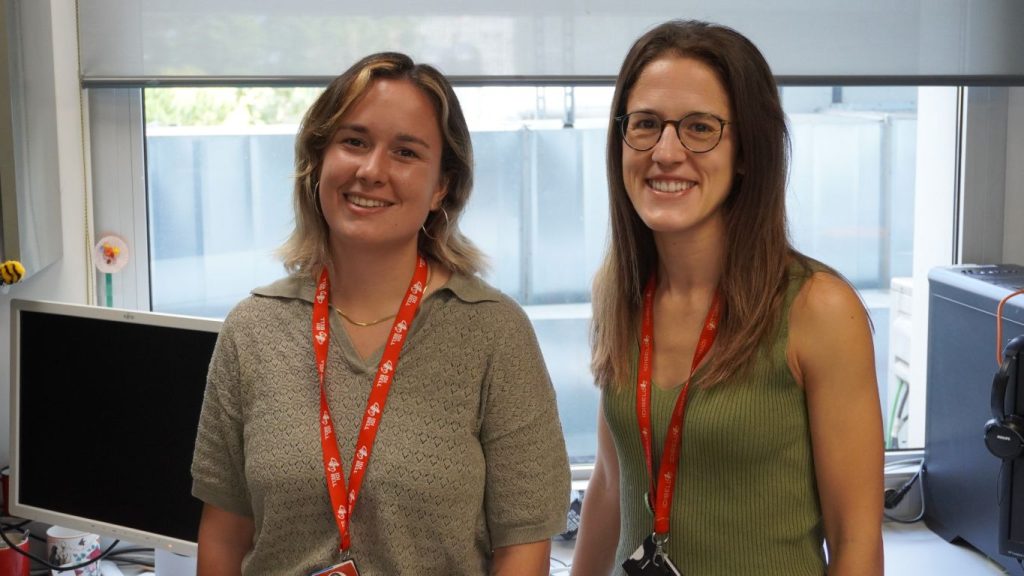Hereditary cancer accounts for between 5 and 10% of cancers in Catalonia and in the world. Patients with hereditary cancer syndrome have variants in their genome that increase their susceptibility to developing cancer at younger ages and with a higher probability of recurrence. These variants are heritable and identifying them is of enormous value to patients: it allows improving the prevention and treatment of the disease and increasing the survival and quality of life of patients and family members who carry the variant.
Precisely, at the Catalan Institute of Oncology, the Molecular Diagnostic Laboratory performs the genetic diagnosis of more than 3,000 patients a year by evaluating a set of genes, called a panel, which are known to predispose to cancer. This panel includes genes such as BRCA1 and BRCA2, which increase the risk of developing breast and ovarian cancer.
The use of bioinformatics in the identification of genetic variants
One of the most relevant types of variants to detect in patients are CNVs, alterations that modify the number of copies of a DNA fragment. They are complex variants and, to identify them, you must be able to process and interpret large amounts of genetic information, usually using advanced bioinformatics techniques. This is the work of the Hereditary Cancer research group of IDIBELL and ICO: to improve the detection of genetic variations and their interpretation, with the ultimate aim of offering adequate genetic counselling to patients. Once variants have been identified, genetic diagnosis experts can interpret their clinical relevance and take appropriate steps to treat the disease early.
In this sense, researchers and bioinformaticians Elisabet Munté and Carla Roca, led by Dr. José Marcos Moreno Cabrera, have exhaustively evaluated the 12 bioinformatics tools currently available to detect CNVs from gene panel data. As explained in the study published in Briefings in Bioinformatics, the two tools with the best CNV detection capacity are ClinCNV and GATK-gCNV, the second being especially effective in detecting these variants.
The study in question has had the participation of other leading hospitals and research centres in the territory, such as the University of Barcelona, the Cancer Biomedical Research Network Centre (CIBERONC) of the Carlos III Health Institute, or the Germans Trias i Pujol Hospital and the Germans Trias i Pujol Research Institute (IGTP) adjunct.
An Open Guide to Optimizing the Diagnosis of CNVs
In addition, the researchers have also evaluated the behaviour of the tools by modifying their parameters and have published the results through 436 graphs to serve as a guide for other researchers who want to use them. All these data, collected in the published article, are available in open access and are of great value to genetic diagnostic laboratories around the world, as they provide a reliable guide to choose the best bioinformatics tools for the detection of CNVs and adjust them correctly.
These comparative studies are essential to standardize the detection of CNVs in clinical settings, especially in diagnostic units where panel analysis is standard practice. Improving the identification of these variants means reducing misdiagnosis, increasing early detection and, ultimately, optimizing strategies for the prevention and treatment of hereditary cancer.
The Bellvitge Biomedical Research Institute (IDIBELL) is a research centre created in 2004 and specialising in cancer, neuroscience, translational medicine and regenerative medicine. It has a team of more than 1,500 professionals who, from 73 research groups, publish more than 1,400 scientific articles a year. L’IDIBELL is participated by the Bellvitge University Hospital and the Viladecans Hospital of the Catalan Health Institute, the Catalan Institute of Oncology, the University of Barcelona and the City Council of L’Hospitalet de Llobregat.
IDIBELL is a member of the Campus d’Excelencia Internacional of the University of Barcelona HUBc and is part of the CERCA institution of the Generalitat de Catalunya. In 2009 it became one of the first five Spanish research centres accredited as a health research institute by the Carlos III Health Institute. In addition, it is part of the HR Excellence in Research program of the European Union and is a member of EATRIS and REGIC. Since 2018, IDIBELL has been an Accredited Centre of the AECC Scientific Foundation (FCAECC).

